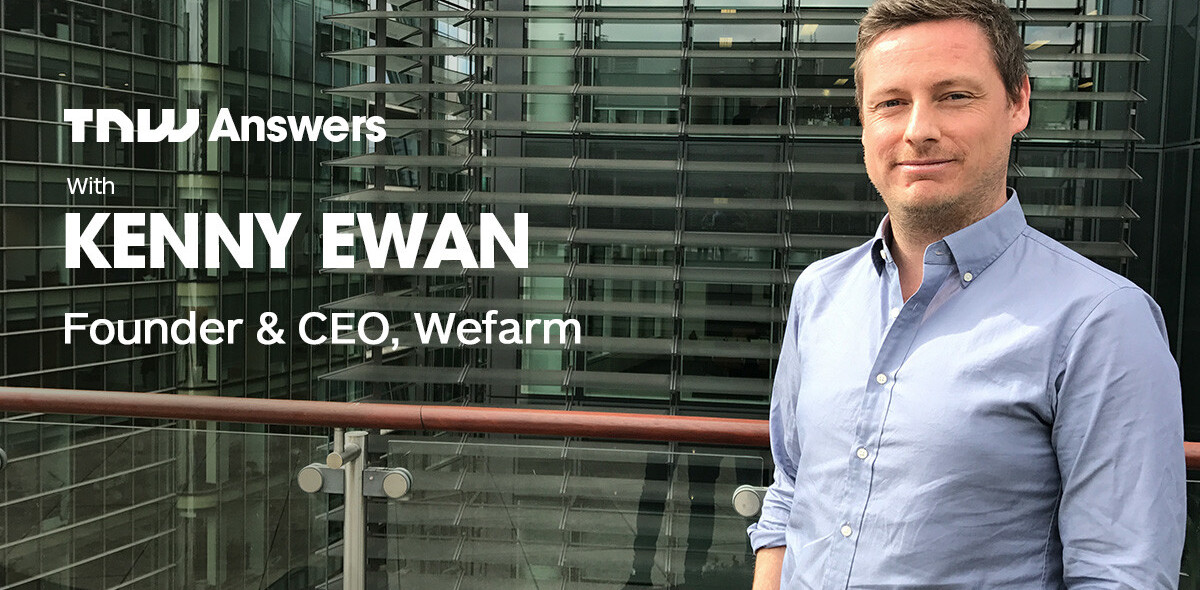
If you were to spend a particularly sunny long holiday weekend in Rio de Janeiro, what would you do? If your choice is to head to the nearest beach like thousands of Cariocas and tourists did, I know at least 120 people here who disagree with you. These startup enthusiasts decided to ignore the temptation and worked full speed for 54 hours on building their own project at Startup Weekend Rio.
Startup Weekend, from Boulder to Brazil
Startup Weekend is a non-profit organization based in Seattle. It’s responsible for what became a very successful event franchise aimed at “educating entrepreneurs and building communities around the world”. The first Startup Weekend took place in Boulder, Colorado in 2007; since then, it has been replicated in many places, from Athens to Cairo.

As for Brazil, Rio de Janeiro was the third city to welcome a Startup Weekend, after São Paulo and Campinas. It was co-organized by 3 key members of the local ecosystem: Gustavo Guida Reis from HelpSaude, Marco Fisbhen from Descomplica and Brazil Innovators’ Bedy Yang, recently featured in our article Latin American Startups: 10 Women to Watch. Thanks to their contact network, they also managed to enlist great mentors, including 500 Startups’ Dave McClure, who flew from Silicon Valley to coach the teams.
“Rio needs your idea”
 Pedro Peracio, recently appointed Rio de Janeiro’s town hall’s Chief Digital Officer, is confident that this was the first of many Startup Weekends that will take place in the city. A speaker at the event’s kick-off on Friday evening, Pedro explained how Rio is using online tools and networks to get closer to its citizens. He gave the example of the mobile app 1746, a unified contact center through which users can let the town hall know about problems such as a defective traffic light and request repairs. Pedro also made it clear that the city is interested in relevant projects developed during Startup Weekend Rio: his message to the audience at the beginning of the event was that “Rio needs your idea.” It seems that his wish was granted: I’d say that at least 2 projects developed during the weekend could be of direct interest to the town hall and the city.
Pedro Peracio, recently appointed Rio de Janeiro’s town hall’s Chief Digital Officer, is confident that this was the first of many Startup Weekends that will take place in the city. A speaker at the event’s kick-off on Friday evening, Pedro explained how Rio is using online tools and networks to get closer to its citizens. He gave the example of the mobile app 1746, a unified contact center through which users can let the town hall know about problems such as a defective traffic light and request repairs. Pedro also made it clear that the city is interested in relevant projects developed during Startup Weekend Rio: his message to the audience at the beginning of the event was that “Rio needs your idea.” It seems that his wish was granted: I’d say that at least 2 projects developed during the weekend could be of direct interest to the town hall and the city.
Many attendees were also confident that the event would help boost the image of Rio’s emerging startup scene and show the skeptics (and rival São Paulo) that the city isn’t just about fun. The vast majority of the participants were indeed from Rio – in a broad sense: the group included quite a few foreigners (from Italy, the US, Finland…) Some participants had also traveled from other Brazilian cities because they had enjoyed the previous Startup Weekends in Brazil. However, the crowd wasn’t exactly the same: according to one of the mentors, Felipe Matos, even if half of Rio’s participants were still students, the group was more mature than in Campinas. There were also a bit more designers (but not enough according to most.) Women were relatively well represented compared with the average tech event and many of the teams focused on projects that had women as their main customers.
How 30 idea pitches became 16 projects
When you only have 54 hours to try and build a startup, everything has to go very fast and the timing is tight: on Friday evening, around 30 participants pitched their startup ideas. These ideas were submitted to a vote and groups immediately started to form. Interestingly, those who didn’t play by the rules and brought ideas that were too developed didn’t get votes. Out of the 30+ pitches, 16 groups of variable size were formed and started working together right away. They knew they had very little time before the final pitch on Sunday afternoon, when the jury would pick 5 winners.
 Yuri Gitahy, founder of Aceleradora, which combines angel money and mentoring, had already briefed the group about what they should aim for during the weekend. In a very interactive presentation, he insisted on the crucial importance of a good pitch. He also explained that even if a perfect product couldn’t be built in this timeframe, the teams should have a demo or prototype ready for the jury and aim for a Minimum Viable Product (defined as “the smallest product that brings value to your customer”.) But it’s another point he made that several teams found the most useful: that they needed to listen to their (potential) customers. From the final pitches, it was clear that many had followed his advice and done surveys via Twitter, Facebook but also on the street to validate their plans.
Yuri Gitahy, founder of Aceleradora, which combines angel money and mentoring, had already briefed the group about what they should aim for during the weekend. In a very interactive presentation, he insisted on the crucial importance of a good pitch. He also explained that even if a perfect product couldn’t be built in this timeframe, the teams should have a demo or prototype ready for the jury and aim for a Minimum Viable Product (defined as “the smallest product that brings value to your customer”.) But it’s another point he made that several teams found the most useful: that they needed to listen to their (potential) customers. From the final pitches, it was clear that many had followed his advice and done surveys via Twitter, Facebook but also on the street to validate their plans.
Comparing Friday’s quick pitches with Sunday’s final pitches was very impressive. It was obvious that not only had the teams worked hard, they had also learned a lot on how to pitch. Besides Yuri’s presentation, Dave McClure gave a couple very engaging talks that clearly made a strong impression on the participants, many of whom weren’t fully familiar with his AAARR model for startup metrics. One of his talks was loosely based on his presentation How to pitch a VC (a must read) and his main message was: “Your solution is not my problem”. In short, what it means is that a good pitch should start with the problem your startup is solving; it’s much easier to grab people’s attention this way than by giving geeky details on your product. Most teams did their best to follow his advice in their pitches. As usual with lessons recently learned, the execution was somewhat clumsy at times – “I’m X and the problem I’m solving is…” – but you could see he had made a point.
 The teams also received support from the other mentors, all of them successful entrepreneurs or investors. From Saturday to Sunday, they constantly went from table to table, challenging every idea to make sure everything had been tested. They also gave useful advice based on their experience. In his introduction talk, Daniel Moreto from consulting group Visagio (and accelerator V.Start) had told the participants how his company had needed to pivot to succeed: its initial idea wasn’t viable as such and needed to be adapted to its customers’ needs. Several teams did just the same during the weekend, and the project they ended up presenting to the jury was quite different from the initial quick pitch, following conversations they had with potential customers.
The teams also received support from the other mentors, all of them successful entrepreneurs or investors. From Saturday to Sunday, they constantly went from table to table, challenging every idea to make sure everything had been tested. They also gave useful advice based on their experience. In his introduction talk, Daniel Moreto from consulting group Visagio (and accelerator V.Start) had told the participants how his company had needed to pivot to succeed: its initial idea wasn’t viable as such and needed to be adapted to its customers’ needs. Several teams did just the same during the weekend, and the project they ended up presenting to the jury was quite different from the initial quick pitch, following conversations they had with potential customers.
And the winners are…
Beyond the fun, a Startup Weekend is also a competition, and winning can mean a lot: the prizes are tailored to help a project to come to life. This is the case in Rio too: the top 5 projects won a screening meeting with accelerator V.Start, the top 4 a screening meeting with IT event Rio Info, the top 3 a mentoring session with Yuri Gitahy’s Aceleradora and the top 2 a meeting with Rio-based angel group Gávea Angels.
 After listening to sixteen 5-minute pitches followed by 3 minutes of Q&A, the jury picked 5 winners based on 5 criteria: execution, pitch, viability, scalability and innovation. The top winner was placeMe, an online booking platform for services such as hairdressers. The pitch delivered by Bruna Bueno might not have been the best in itself – there was a bit too much information – but it was very engaging. It also included a very good demo: the results the team had managed to achieve in this short timeframe were impressive. What’s also interesting is that the jury members, which included Julio Vasconcellos from Peixe Urbano (see our previous story), weren’t initially very convinced this idea was answering a demand and that booking by phone wasn’t that inconvenient. Bruna and her team managed to prove them wrong: they simply weren’t the company’s target, but many women in Rio had shown interest in such a service and Bruna herself had been longing for it.
After listening to sixteen 5-minute pitches followed by 3 minutes of Q&A, the jury picked 5 winners based on 5 criteria: execution, pitch, viability, scalability and innovation. The top winner was placeMe, an online booking platform for services such as hairdressers. The pitch delivered by Bruna Bueno might not have been the best in itself – there was a bit too much information – but it was very engaging. It also included a very good demo: the results the team had managed to achieve in this short timeframe were impressive. What’s also interesting is that the jury members, which included Julio Vasconcellos from Peixe Urbano (see our previous story), weren’t initially very convinced this idea was answering a demand and that booking by phone wasn’t that inconvenient. Bruna and her team managed to prove them wrong: they simply weren’t the company’s target, but many women in Rio had shown interest in such a service and Bruna herself had been longing for it.
 OndeKH? didn’t win the first place, but it was a close call: Dave McClure said that it had delivered the best pitch and that he could be interested in investing in the startup. He added: “This sh*t could work!” So what is it all about? The name of the company tells a lot: aid out loud, it sounds like ‘Where to poop’ in Portuguese! Although the idea isn’t entirely new – an app that will let users know about the nearest public bathroom – it doesn’t exist yet in Brazil. If you’re curious to know more, have a look at its PowerPoint presentation – probably SW Rio’s best. With only three people, OndeKH? was one of the smallest teams, but counted with a designer, which clearly makes a difference.
OndeKH? didn’t win the first place, but it was a close call: Dave McClure said that it had delivered the best pitch and that he could be interested in investing in the startup. He added: “This sh*t could work!” So what is it all about? The name of the company tells a lot: aid out loud, it sounds like ‘Where to poop’ in Portuguese! Although the idea isn’t entirely new – an app that will let users know about the nearest public bathroom – it doesn’t exist yet in Brazil. If you’re curious to know more, have a look at its PowerPoint presentation – probably SW Rio’s best. With only three people, OndeKH? was one of the smallest teams, but counted with a designer, which clearly makes a difference.
The third winner, PlayboYourself, also had a great final pitch. Its catchy concept had been getting the most buzz from Friday: it mixes crowdfunding and amateur naked photoshoots (male and female). Its tagline is that “everyone has a price”: users can bid money on photoshoot offers; if enough funds are raised, the photoshoot will take place and those who bid the most will get extras such as live streaming! Although the company might need to change name, there’s no reason why it wouldn’t work and the team made it clear than they do plan to launch it.
 The fourth place went to Gato Laranja (‘Orange Cat’, a tip of the hat to Garfield), a food delivery service which could be very interesting if properly and quickly executed. One of the mentors, André Diamand, from pre-seed investment fund Venture One, gave the team a great idea: during their demo, they ordered a pizza… which was delivered to the judges right after the pitch! But it’s not the only way they impressed the jury: the fact that they managed to get 7,000 people to answer a survey on Facebook in one day wowed everyone. The survey in itself was very interesting: when asked which restaurants should start a delivery service, many people mentioned places which did offer this service! This was a very good argument for Gato Laranja’s platform.
The fourth place went to Gato Laranja (‘Orange Cat’, a tip of the hat to Garfield), a food delivery service which could be very interesting if properly and quickly executed. One of the mentors, André Diamand, from pre-seed investment fund Venture One, gave the team a great idea: during their demo, they ordered a pizza… which was delivered to the judges right after the pitch! But it’s not the only way they impressed the jury: the fact that they managed to get 7,000 people to answer a survey on Facebook in one day wowed everyone. The survey in itself was very interesting: when asked which restaurants should start a delivery service, many people mentioned places which did offer this service! This was a very good argument for Gato Laranja’s platform.
The cab booking app Easy Taxi, the last winner, also had one of the best pitches – the team leader Tallis Gomes is obviously a born salesman. Again, having talked to potential customers and clients during the weekend also made a difference: it convinced the jury that taxi cooperatives and independent taxi drivers could be interested in this service and that the fee Easy Taxi plans to charge was in line with the market.
Why everyone wins
As often with competitions, several interesting ideas were left out, but what’s interesting is that some of them might come to life regardless. For instance, the team behind online comics publishing and reading platform Geebee, which got a special mention from the jury, will go ahead with its idea and is considering crowdfunding via the local platform Catarse. EcoPoints is also going ahead with its project, a loyalty program for recycling. Another group, which was working on a real-time traffic information website, will be in touch with Rio’s town hall to discuss a possible partnership.
This was actually one of the most interesting things about the event: that it was more than just a game and could lead to real business. Several of the mentors that helped the teams over the weekend and jury members also run accelerators and funds and had an eye open for good projects. For example, the recently soft-launched accelerator V.Start, based in Rio, was the main event sponsor. Beyond projects, some were also on the hunt for talent, like the entrepreneur and investor Steve Vachani, from Serendipity Ventures. In his view, talent is what matters the most for a startup. He likes to start from finding entrepreneurs with the right qualities – the right business idea can come later. From SW Rio, he said he would follow up with at least 5 participants who caught his attention.
When three days aren’t enough…
![]() Considering how much the teams have achieved in only 3 days, it would be very interesting to see what could be done in a longer timeframe. This is exactly what Felipe Matos plans to do. A founder at Instituto Inovaçao, Felipe has been working with startups since the 90s, when he launched his first venture at the age of 16. His next project is called Startup Farm, a one-month incubation program whose first edition will take place in São Paulo in August, in partnership with Brazil Innovators. Let’s hope that several interesting Brazilian startups will come out of it!
Considering how much the teams have achieved in only 3 days, it would be very interesting to see what could be done in a longer timeframe. This is exactly what Felipe Matos plans to do. A founder at Instituto Inovaçao, Felipe has been working with startups since the 90s, when he launched his first venture at the age of 16. His next project is called Startup Farm, a one-month incubation program whose first edition will take place in São Paulo in August, in partnership with Brazil Innovators. Let’s hope that several interesting Brazilian startups will come out of it!
Have you already participated in a Startup Weekend? What did you think?
Get the TNW newsletter
Get the most important tech news in your inbox each week.




